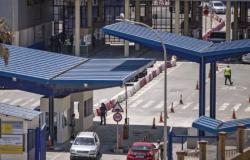The results of the implementation of the “Performance Index of Participatory Democracy for a Resilient and Inclusive Green Transition” (PDI 4 GRI) were presented Thursday in Casablanca. This index, applied in several local authorities in the Casablanca-Settat region, highlights the efforts made for an ecological transition while identifying persistent challenges.
The study highlights the need for a shared vision of urban development over the next 5, 10 and 20 years, based on collaboration between local decision-makers and citizens. This project, developed by the Moroccan Alliance for Climate and Sustainable Development (AMCDD) over the period 2023-2024, aims to measure citizen participation in the integration of climate, energy and environmental requirements in territorial management.
Hassan Agouzoul, expert associated with the project, highlighted the importance for local authorities to adopt approaches focused on energy efficiency, waste management and the promotion of sustainable mobility. He clarified that these measures do not necessarily require considerable financial resources, but are based on collective and territorial intelligence.
The index also highlights the need to develop digital platforms offering up-to-date information on municipal services and economic, social and cultural opportunities. In addition, the recommendations call for improving urban sustainability indices, notably through digitalization and the use of artificial intelligence in sectors such as transport, health and waste management.
According to Abderrahim El Ksiri, member of the AMCDD and project coordinator, the index was applied in 2023 in ten municipalities in the Casablanca-Settat region. This initiative takes into account the diversity of municipalities and their environmental and energy specificities. The objective is to assess communities’ compliance with sustainable city criteria in five key areas: water, transport, green spaces, waste management and participatory democracy.
-The PDI 4 GRI was carried out by the AMCDD, which brings together more than 800 associations, in partnership with the delegated ministry responsible for Relations with Parliament, the General Directorate of Territorial Communities, the Belgian Development Agency (Enabel) and with the support of the European Union.
LNT
Share this article:







